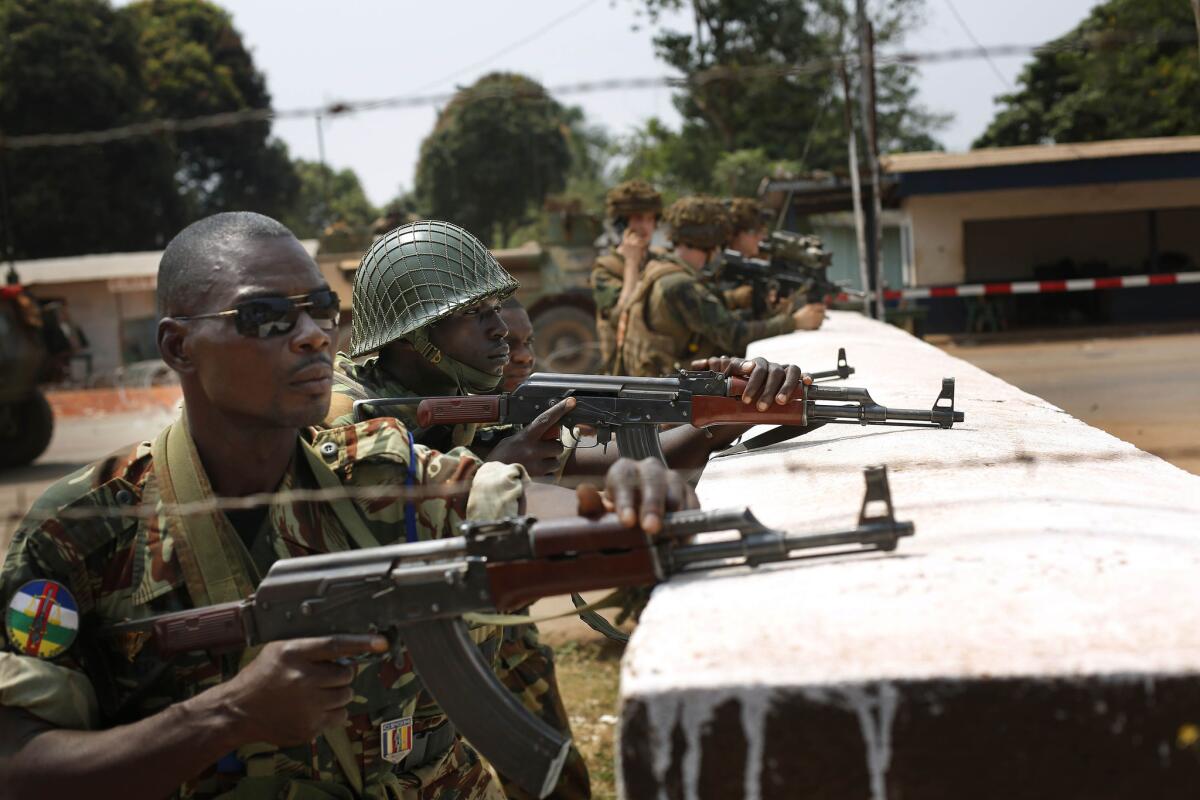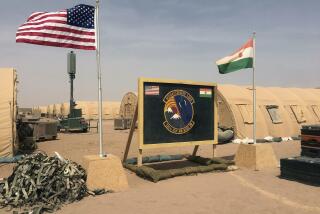Chad to withdraw peacekeeping troops from Central African Republic

Chad’s Foreign Ministry said Thursday that it would withdraw its 850 peacekeeping troops from the African Union mission in the neighboring Central African Republic.
The move follows criticism from human rights organizations and Christian militants after Chadian troops were involved in shootings that killed 32 people last weekend in Bangui, capital of the Central African Republic.
“Despite the sacrifices we have made, Chad and Chadians have been targeted in a gratuitous and malicious campaign that blamed them for all the suffering in CAR,” the Foreign Ministry said in a statement.
Chadian troops will remain deployed in the violence-racked country “while the practicalities of the withdrawal are confirmed,” the statement said, as reported by World Bulletin, an Istanbul, Turkey-based news agency focusing on issues in the Muslim world. The government gave no time frame for when the withdrawal would begin.
Chad, with a predominantly Muslim population, has aided tens of thousands of Central African Republic Muslims in escaping attack by mainly Christian “anti-balaka,” or “anti-machete,” militias bent on revenge against those they see as having supported the Muslim rebels who seized power in March 2013. The putschists were driven out in January after an explosion of religious and ethnic violence left at least 2,000 dead in December.
Chadian forces have also been accused by human rights groups of failing to coordinate with other African Union forces in the mission, known as MISCA.
The Chad contingent makes up about 15% of the 6,000-strong African Union peacekeeping deployment, which is bolstered by 2,000 soldiers from France, the country’s former colonial ruler.
More than 1 million people were displaced by the violence, which peaked ahead of the Muslim rebels’ ouster from power three months ago, and 625,000 remain internally displaced, about a third of them in Bangui, the Office of the United Nations High Commissioner for Refugees has reported.
Twitter: @cjwilliamslat
More to Read
Start your day right
Sign up for Essential California for news, features and recommendations from the L.A. Times and beyond in your inbox six days a week.
You may occasionally receive promotional content from the Los Angeles Times.







